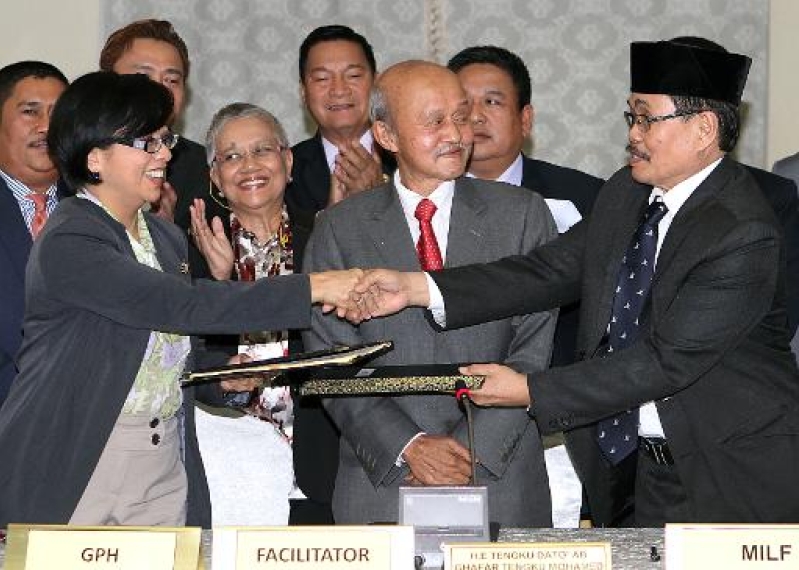
On Saturday, after more than a year of negotiations, the Philippine government reached a peace agreement with the country's largest Muslim insurgency group. If successful, the agreement will be a significant step toward ending more than 100 years of violence between Muslims and the largely Christian government.
The deal struck with the Moro Islamic Liberation Front allows for the creation of an independent Muslim region on the southernmost island of Mindanao where many Muslims already live.
In Bangsamoro - as the region will be called - the Muslim-majority local government will share power with the national government, the latter controlling Bangsamoro's defense as well as its foreign and monetary policies. Local authorities will be given "broad local powers," and are also ensured significant portions of the tax revenue earned from natural resources in the region. The MILF will control Bangsamoro's internal security.
In a statement released on Saturday, Secretary of State John Kerry congratulated the two groups, hailing their work as "historic" and a sign of progress toward a "just and peaceful solution." Some in the international community, however, still have doubts.
Several Muslim insurgency groups did not sign on to the peace agreement, including the Abu Sayyaf - which has ties to al-Qaida - and the Moro National Liberation Front, from which the MILF split in 1977.
The MNLF has signed two ultimately failed ceasefires with the government - one in 1976 and another 1996. On Monday, they denounced the MILF's deal, claiming it violates the 1996 agreement the government made with them. Some believe they will now revive a 2001 petition to the United Nations for an independent Muslim state.
The Philippine population is overwhelmingly Christian - more than 90 percent of Filipinos are Christian, most of them Catholic. In fact, the Philippines have been solidly Catholic since Spanish colonization of the islands in the 16th century. Muslims make up 5 percent of the population and have been fighting for autonomy since the late 1880s, sometimes threatening secession.
Tens of thousands of people have been killed in the on-going violence, and more than 2 million have been displaced. In September, the city of Zamboanga - the Philippines sixth largest - was shut down for five days during a standoff between the army and the MNLF in which more than 200 people were killed. At the time, MNLF insurgents said they were fighting for an independent state, not an autonomous region like the one promised in Saturday's agreement.
Earlier this month, Pope Francis named Philippine archbishop Orlando Quevedo one of 19 new cardinals, which some, including Philippine clergy, hoped would help bring and end to the conflict.
Bishop Martin Jumoad told Catholic media Quevedo's voice "will surely have weight, and he can guide the peace talks to be pro-God, pro-people, devoid of selfish interest, but only for the welfare of the whole people of Mindanao."
Even Moghager Iqbal, an MILF leader, said the appointment was "good for peace efforts in Mindanao."
The Philippine congress must still approve Saturday's peace agreement before it goes into effect, but it is largely expected to pass and to be signed in the next few weeks.







